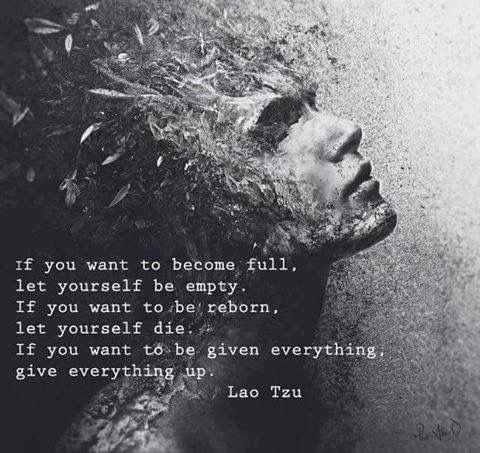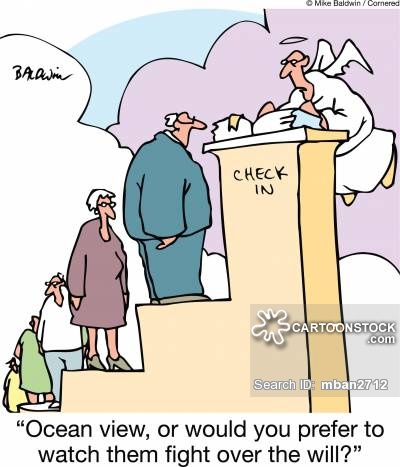Lesson 13: Life After Death

Learning Outcomes
Upon completion of this lesson's material, students will be able
- To identify ways that society and cultures view life after death
- Understand the difference in beliefs around what happens after someone dies
- Be able to articule several views on life after death
Teaching
Read Chapter 4
Society, Religion, Culture and our own personal values and experiences all factor into how a person views what happens after they die. We have all heard stories about seeing "the white light" and "being called" to the next step whether that is heaven, hell, reincarnation, the in-between etc. This lesson will aim to give information about other beliefs and thoughts about what happens when you die, and give you stories from those who have experienced death through what is often called "near death" experiences or "return from the dead" stories.
Read: http://www.newsweek.com/proof-heaven-doctors-experience-afterlife-65327
Explore Life After Death docu-series on YouTube which explores different stories of individuals who have experienced near death or after death experiences. You do not need to watch all of them but explore and see what might interest you in regards to different perspectives.
Read: http://lmrpcc.org.au/admin/wp-content/uploads/2011/07/Customs-Beliefs-Death-Dying.pdf
For many people it's their religion that dictates what happens after they die. The following is an overview of different religions and the unique perspectives of what happens after death:
Buddhists believe in rebirth and that when they die they will be reborn again. The goal is to escape the cycle of death and rebirth and attain nirvana or a state of perfect peace. There are lots of different types of Buddhism and many different ways of dealing with death.
Catholics believe that there is an afterlife and that once a person dies they will see God face to face. If a person has committed a grave offence and has not repented at the time of death then that person would not enter into the full glory of heaven
Christians trust they will go to heaven to be with God once they have died and so in some respects a funeral is a time of joy, although also sadness, as the person will be missed by friends and loved ones.
Church of Jesus Christ Latter Day Saints (or Mormons as they are also known) believe that at death the body and the spirit separate. The spirit goes to the spirit world before being reunited with the body. The judgment will then occur and after that the person will live in Heaven with God.
Followers of the Greek Orthodox religion believe in eternal life. Thus the church strongly emphasises a positive outcome in death — that the deceased is alive with God. While death is the separation of the soul (the spiritual dimension of each person) from the body (the physical dimension), the physical body will be reunited with the soul at the Last Judgment.
Hinduism embraces a pantheon of gods and goddesses, with individual Hindus worshipping one or more of these. Hindus believe in reincarnation. When a person dies their soul merely moves from one body to the next on its path to reach Nirvana (Heaven). So, while it is a sad time when someone dies, it is also a time of celebration
Jehovah’s Witnesses believe that when they die they go into a kind of sleep until God resurrects them from the dead. Those who gain entrance to heaven will live with God but the vast majority of mankind will be resurrected to a restored paradise on earth.
Beliefs may vary depending on whether the Jewish person is Orthodox, Reform or Conservative. Jews believe that when they die they will go to Heaven to be with God. This next world is called Olam HaEmet or ‘the world of truth’. Death is seen as a part of life and a part of God’s plan.
Traditional Maori believe that the spirit continues to exist after death and that the deceased will always be a part of the marae (traditional meeting place). Once someone has died they will go to the spirit world.
There are two types of Muslims – Shi’ite and Sunni, so beliefs and customs may be slightly different for each. Muslims believe that the soul continues to exist after death. During life a person can shape their soul for better or worse depending on how they live their life. Muslims believe there will be a day of judgment by Allah (God). Until then, the deceased remain in their graves but on judgment day they will either go to Heaven or Hell. Muslims accept death as God’s will.
Scientologists believe that humans are immortal spiritual beings called thetans who live several lives. Each thetan has a body and a mind, which exists from lifetime to lifetime. When a person dies they simply move into a new life.
Seventh Day Adventists believe that death is an unconscious sleep. When Christ returns to the earth he will awaken all those who believe in him and they will all go to be with God in heaven.
Sikhs believe in reincarnation but also that if a person lives their life according to God’s plan then they can end the cycle of rebirth in this life. They believe in an afterlife where the soul meets God
For the whole document and more information please see: http://lmrpcc.org.au/admin/wp-content/uploads/2011/07/Customs-Beliefs-Death-Dying.pdf

Assessment
Lesson 13 Quiz
1.What are the similarities and differences in Jewish, Christian, Islamic, Hindu and Buddhist beliefs about death, funeral practices and what happens next?
2. Explain the following quote from your course text: "Religion afflicts the comforted and comforts the afflicted".
Lesson 13 Discussion
Consider the types of death you have experienced and post a short discussion to your peers calling on your own experiences. Discuss how your own experiences impact your belief on what happens after death or consider stories you have heard about near death experiences. Share thoughts through from the semester and tie together your learning you have completed.
Lesson 13 Activity
Summarize your experience in this class thus far. Highlight the readings and resources, and provide feedback for what worked and what did not. Discuss any changes to your understanding or any alteration that you may make to your personal and/or professional experiences with death/dying. What were three things that worked well in this course? What are three improvements that you would make? What mattered? What would you like to have known more about?